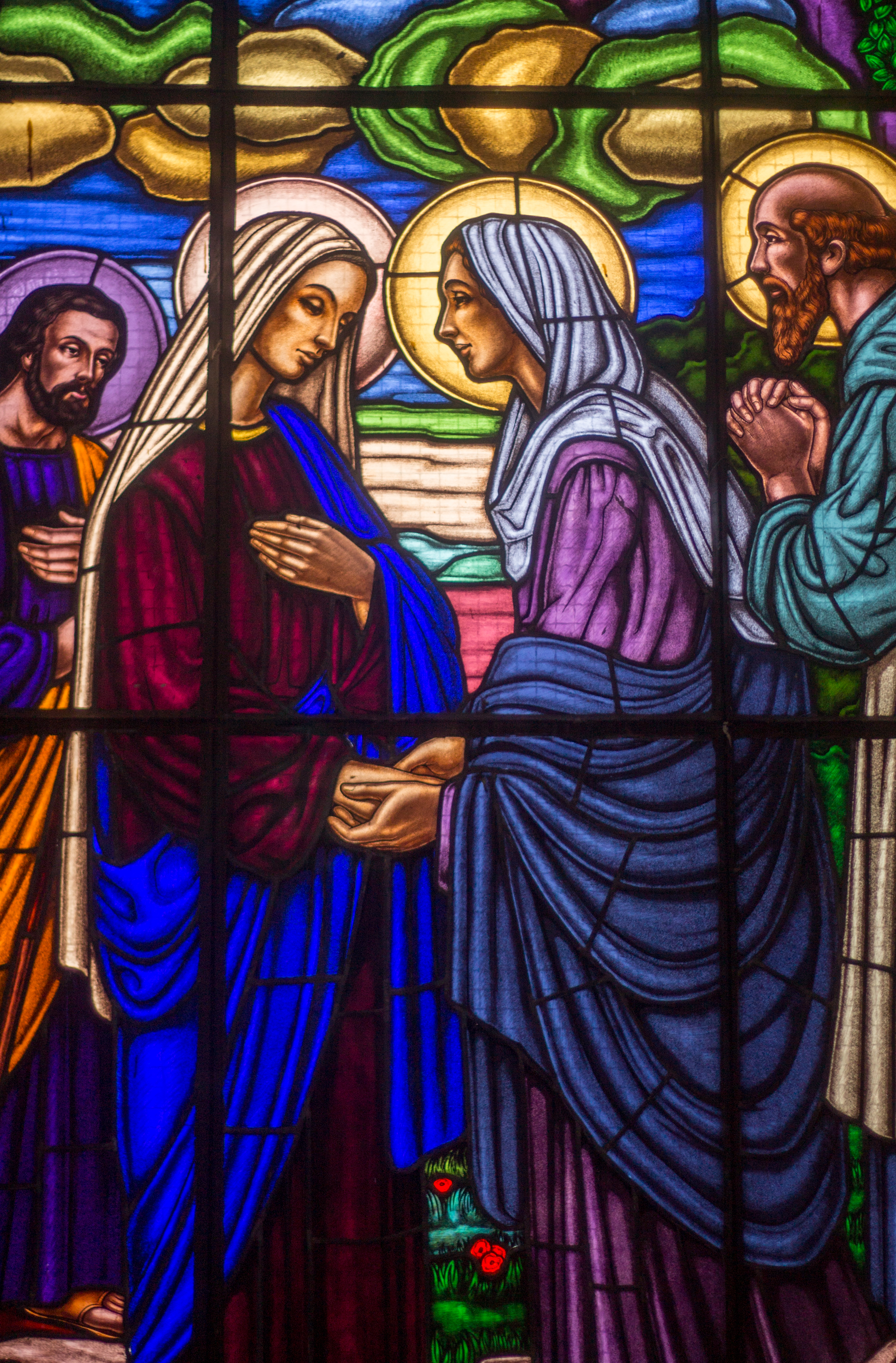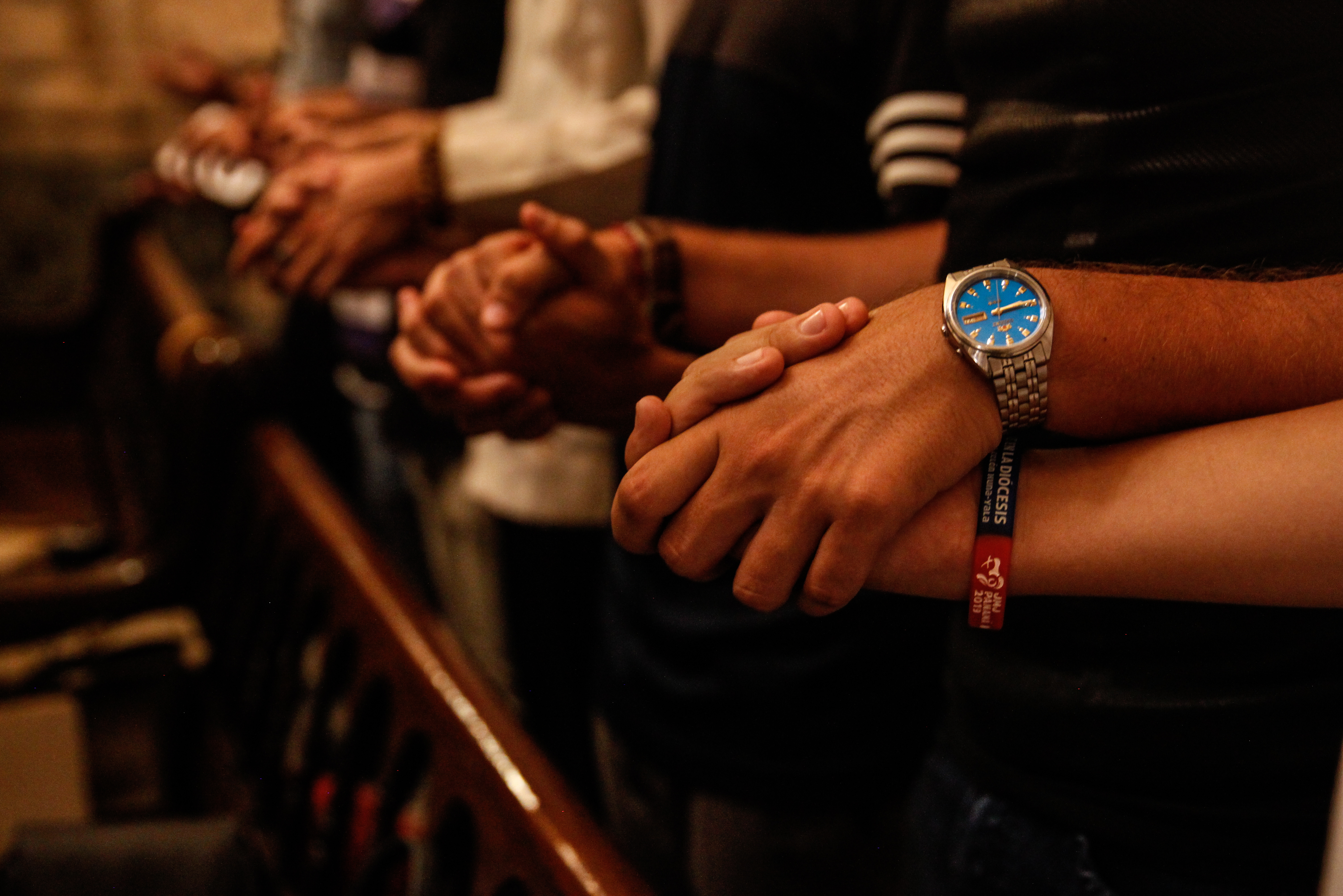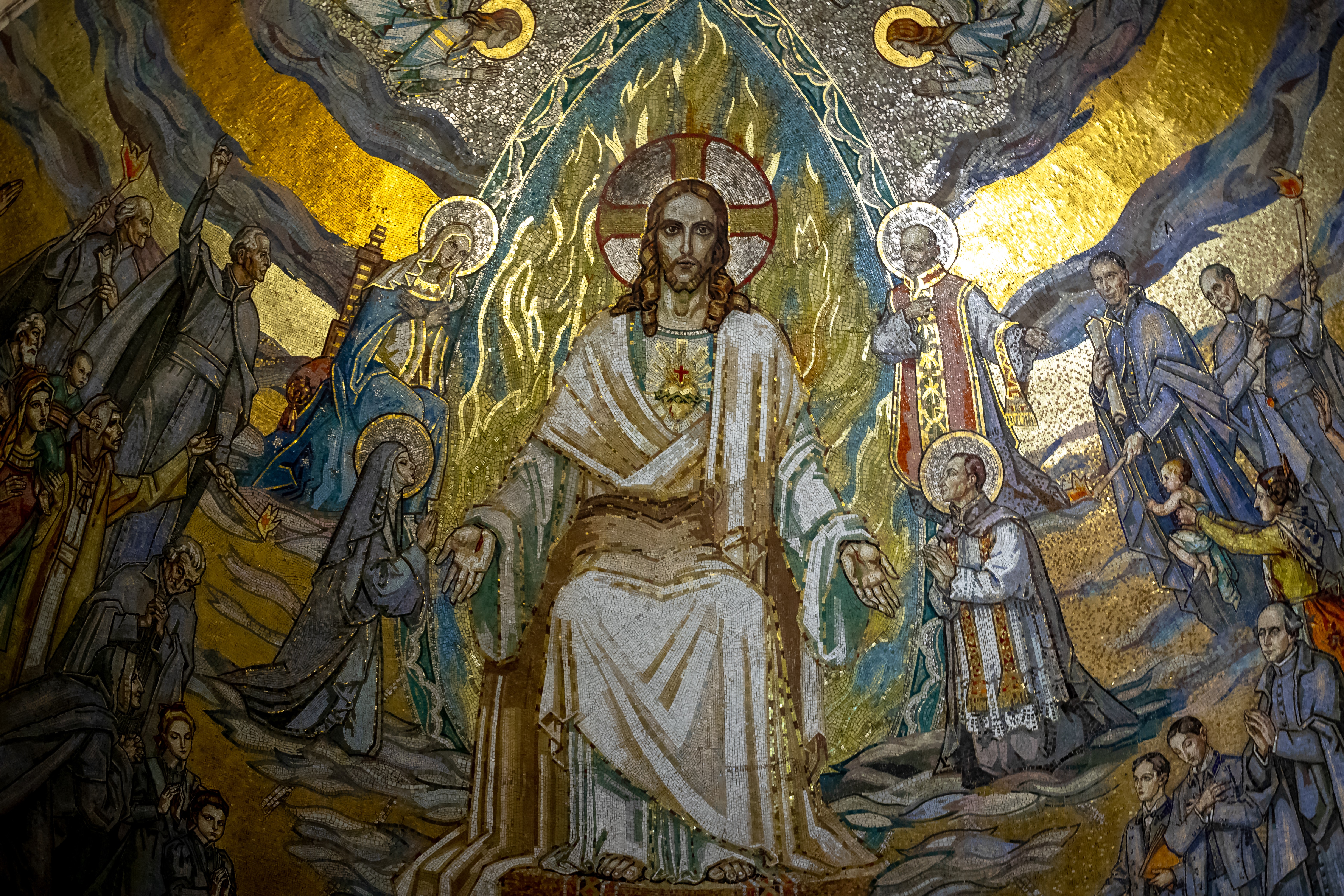Part of my job at my parish is forming and preparing the eighth grade students for the Sacrament of Confirmation. I enjoy the preparation program that we use and I often find myself learning right alongside the Confirmation candidates.
One line from a recent lesson’s video has really stuck out to me lately. While talking about the gift of the Holy Spirit called fortitude, the message to the candidates went a little something like this, “You probably aren’t called to be a martyr, to die for your faith. It’s more likely that you’ll be asked to simply stand up for your faith and say that you believe in Jesus Christ.”
To an average eighth grade student, that’s a terrifying possibility. Even for those who attend Catholic grade schools and high schools, faith isn’t often talked about outside of religion class. It’s not daily lunchtime conversation. It’s not brought up on the bus. And, even if faith is brought up, often students don’t know what to say or how to say it … or they’re too scared to speak up.
It’s not just today’s young people, though. Many adults feel the same way – that they’re ill equipped to speak eloquently and confidently about the faith or they are silent in fear of rejection and ridicule.
That’s where I take comfort in today’s Gospel passage: “The stone that the builders rejected has become the cornerstone; by the Lord has this been done and it is wonderful in our eyes.” Trials and tribulations are part of the Christian life, as much as we may wish they weren’t. There are (or will be) times that we face rejection and times when enemies try to drag us down.
But we should not fear – because the Lord is with us in these challenges. He will overcome, for He is more powerful than our difficulties. He is more merciful and loving than our enemies. And He will give us all the strength we need to stand up in and publicly proclaim our faith in Jesus Christ.
May you be strong in the face of trial, brothers and sisters, and may you call upon the Lord for help.
Parte de mi trabajo en mi parroquia es formar y preparar a los estudiantes de octavo grado para el Sacramento de la Confirmación. Disfruto el programa de preparación que usamos y, a menudo, me encuentro aprendiendo junto con los candidatos de Confirmación.
Una línea del video de una lección reciente realmente me ha llamado la atención últimamente. Mientras hablaba sobre el don del Espíritu Santo llamado fortaleza, el mensaje a los candidatos fue algo así: “Probablemente no estás llamado a ser un mártir, a morir por tu fe. Es más probable que te pidan que simplemente defiendas tu fe y digas que crees en Jesucristo”.
Para un estudiante de octavo grado, esa es una posibilidad aterradora. Incluso para aquellos que asisten a escuelas primarias y secundarias católicas, no se suele hablar de la fe fuera de la clase de religión. No es una conversación diaria a la hora del almuerzo. No se menciona en el autobús. Y, incluso si se menciona la fe, a menudo los estudiantes no saben qué decir o cómo decirlo… o tienen demasiado miedo de hablar.
Sin embargo, no se trata solo de los jóvenes de hoy. Muchos adultos sienten lo mismo: que no están preparados para hablar con elocuencia y confianza sobre la fe o que guardan silencio por miedo al rechazo y al ridículo.
Ahí es donde me consuelo en el pasaje del Evangelio de hoy: “La piedra que desecharon los constructores se ha convertido en piedra angular; por el Señor ha sido hecho esto y es maravilloso a nuestros ojos.” Las pruebas y tribulaciones son parte de la vida cristiana, por mucho que deseemos que no lo sean. Hay (o habrá) momentos en los que nos enfrentamos al rechazo y momentos en que los enemigos intentan arrastrarnos hacia abajo.
Pero no debemos temer, porque el Señor está con nosotros en estos desafíos. Él vencerá, porque es más poderoso que nuestras dificultades. Es más misericordioso y amoroso que nuestros enemigos y nos dará toda la fuerza que necesitamos para levantarnos y proclamar públicamente nuestra fe en Jesucristo.
Que sean fuertes frente a la prueba, hermanos y hermanas, y que pidan ayuda al Señor.
 Erin is a Cleveland native and graduate of Franciscan University of Steubenville. She is passionate about the Lord Jesus, all things college sports and telling stories and she is blessed enough to get paid for all three of her passions as a full-time youth minister and a freelance sports writer.
Erin is a Cleveland native and graduate of Franciscan University of Steubenville. She is passionate about the Lord Jesus, all things college sports and telling stories and she is blessed enough to get paid for all three of her passions as a full-time youth minister and a freelance sports writer.
Feature Image Credit: Kyle Glenn, unsplash.com/photos/dGk-qYBk4OA




 Sheryl is happy to be the number 1 cheerleader and supporter for her husband, Tom who is a candidate for the Permanent Diaconate in the Diocese of Kalamazoo. They are so grateful for the opportunity to grow together in this process. Sheryl’s day job is serving her community as the principal for St. Therese Catholic School in Wayland, Michigan. Since every time she thinks she gets life all figured out, she realizes just how far she has to go, St. Rita of Cascia is her go-to Saint for intercession and help. Home includes Carlyn, a very, very goofy Golden Retriever and Lucy, our not-so-little rescue puppy.
Sheryl is happy to be the number 1 cheerleader and supporter for her husband, Tom who is a candidate for the Permanent Diaconate in the Diocese of Kalamazoo. They are so grateful for the opportunity to grow together in this process. Sheryl’s day job is serving her community as the principal for St. Therese Catholic School in Wayland, Michigan. Since every time she thinks she gets life all figured out, she realizes just how far she has to go, St. Rita of Cascia is her go-to Saint for intercession and help. Home includes Carlyn, a very, very goofy Golden Retriever and Lucy, our not-so-little rescue puppy. 
 Merridith Frediani loves words and is delighted by good sentences. She also loves Lake Michigan, dahlias, the first sip of hot coffee in the morning, millennials, and playing Sheepshead with her husband and three kids. She writes for Catholic Mom, Diocesan.com, and her local Catholic Herald. Her first book Draw Close to Jesus: A Woman’s Guide to Adoration is available at Our Sunday Visitor and Amazon. You can learn more at
Merridith Frediani loves words and is delighted by good sentences. She also loves Lake Michigan, dahlias, the first sip of hot coffee in the morning, millennials, and playing Sheepshead with her husband and three kids. She writes for Catholic Mom, Diocesan.com, and her local Catholic Herald. Her first book Draw Close to Jesus: A Woman’s Guide to Adoration is available at Our Sunday Visitor and Amazon. You can learn more at 
 Tami Urcia grew up in Western Michigan, a middle child in a large Catholic family. She spent early young adulthood as a missionary in Mexico, studying theology and philosophy, then worked and traveled extensively before finishing her Bachelor’s Degree in Western Kentucky. She loves tackling projects, finding fun ways to keep her little ones occupied, quiet conversation with the hubby and finding unique ways to love. She works full time, is a guest blogger on
Tami Urcia grew up in Western Michigan, a middle child in a large Catholic family. She spent early young adulthood as a missionary in Mexico, studying theology and philosophy, then worked and traveled extensively before finishing her Bachelor’s Degree in Western Kentucky. She loves tackling projects, finding fun ways to keep her little ones occupied, quiet conversation with the hubby and finding unique ways to love. She works full time, is a guest blogger on 
 Emily Jaminet is a Catholic author, speaker, radio personality, wife, and mother of seven children. She earned a bachelor’s degree in mental health and human services from the Franciscan University of Steubenville. She is the co-founder of
Emily Jaminet is a Catholic author, speaker, radio personality, wife, and mother of seven children. She earned a bachelor’s degree in mental health and human services from the Franciscan University of Steubenville. She is the co-founder of 


 David Dashiell is a freelance author and editor in Nashville, Tennessee. He has a master’s degree in theology from Franciscan University, and is the editor of the anthology
David Dashiell is a freelance author and editor in Nashville, Tennessee. He has a master’s degree in theology from Franciscan University, and is the editor of the anthology 
 Allison Gingras (
Allison Gingras ( 

 Christine Hanus currently lives in Upstate, NY. Though she enjoys writing and her work as a catechist, Christine is primarily a wife, mother, and more recently, grandmother!
Christine Hanus currently lives in Upstate, NY. Though she enjoys writing and her work as a catechist, Christine is primarily a wife, mother, and more recently, grandmother!